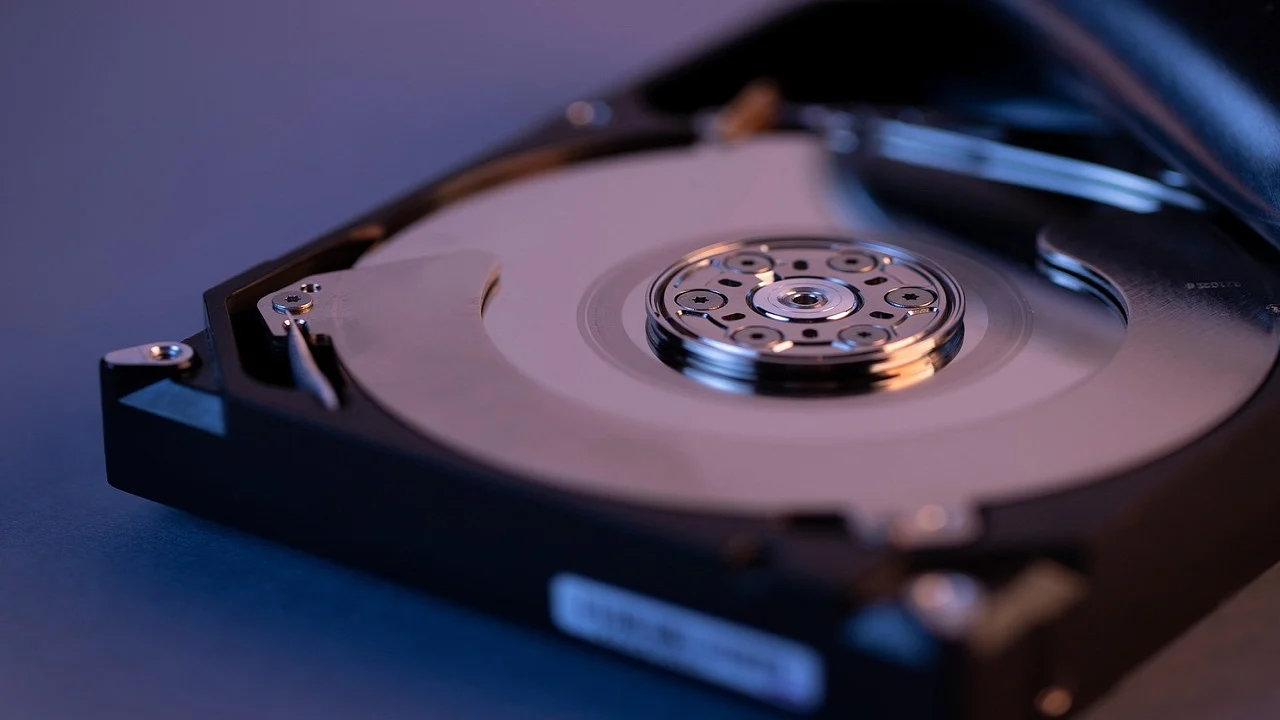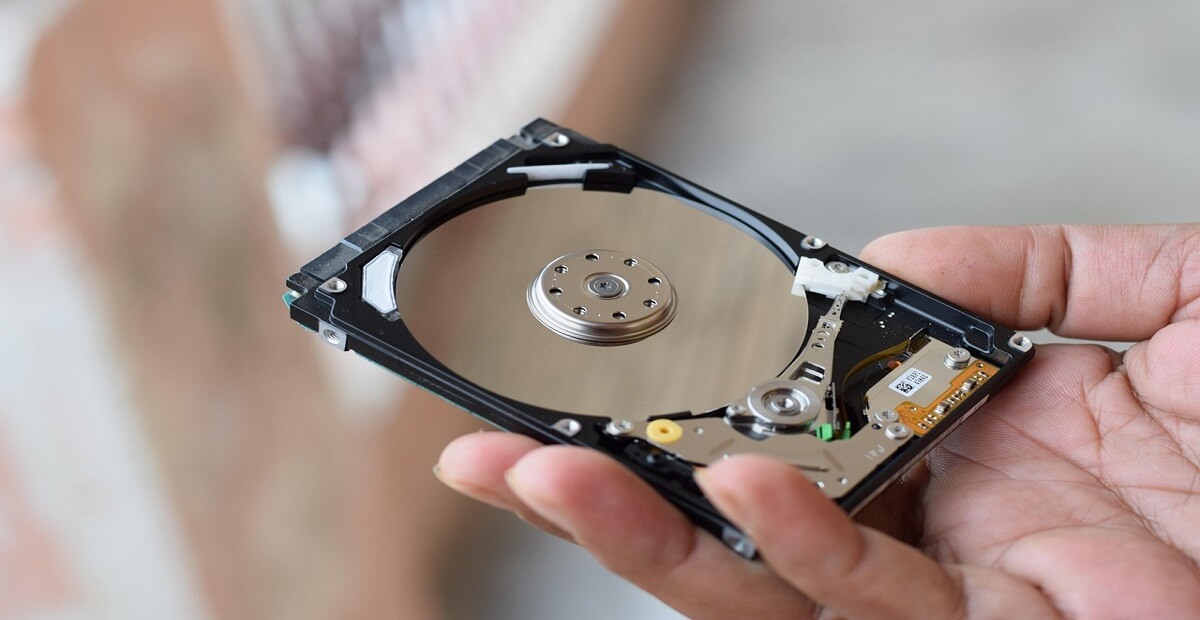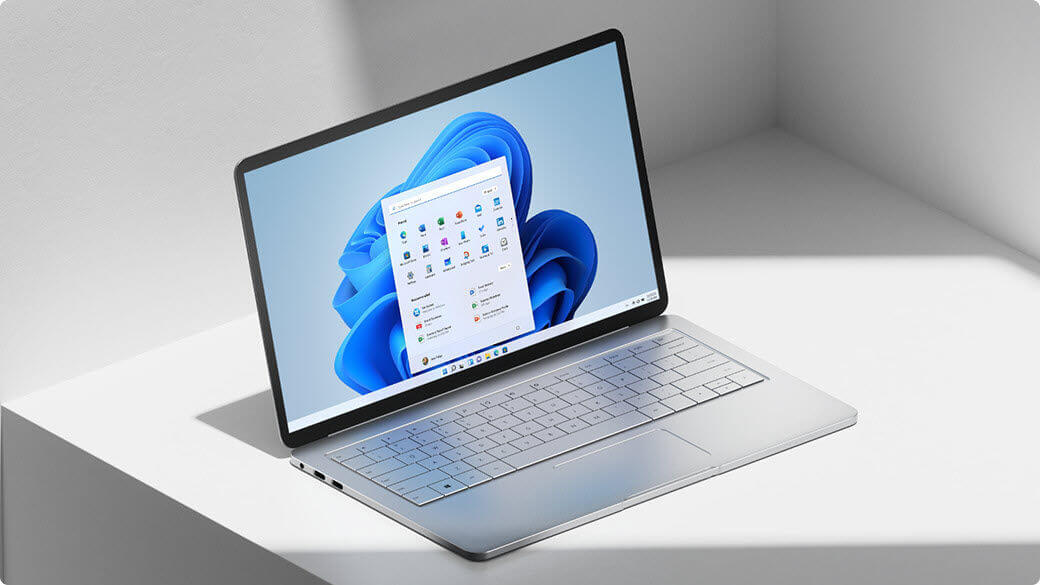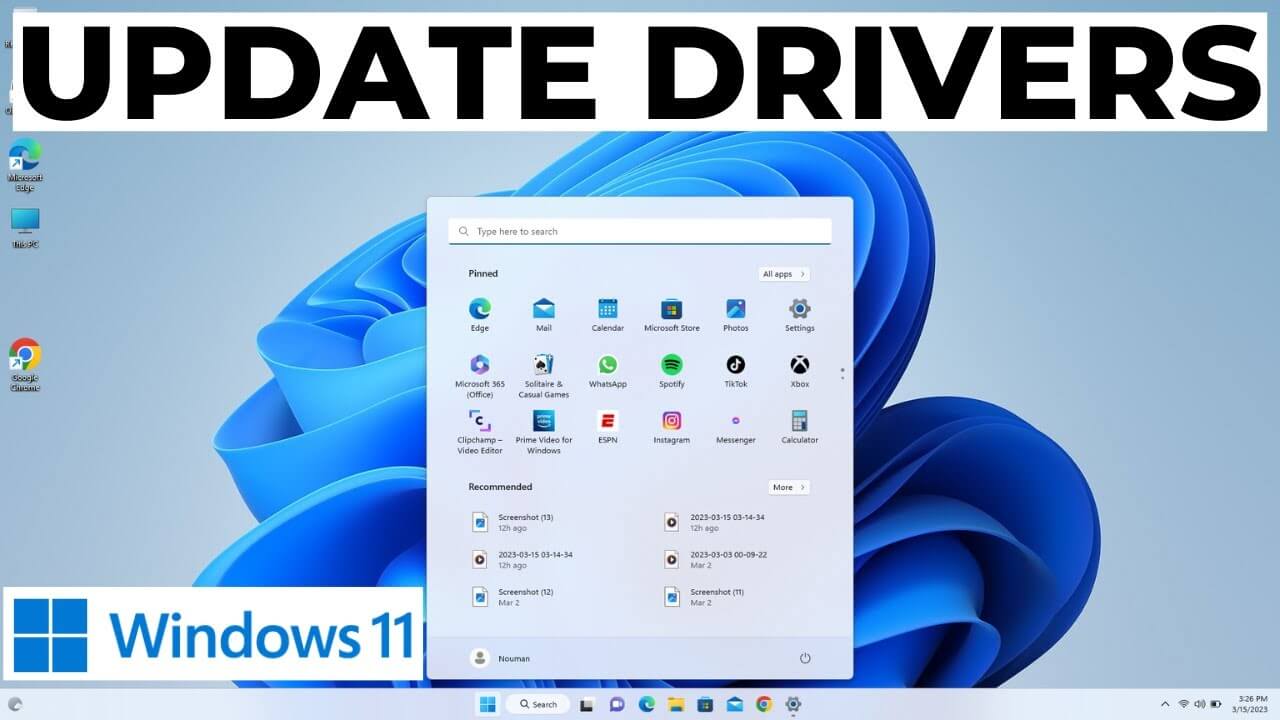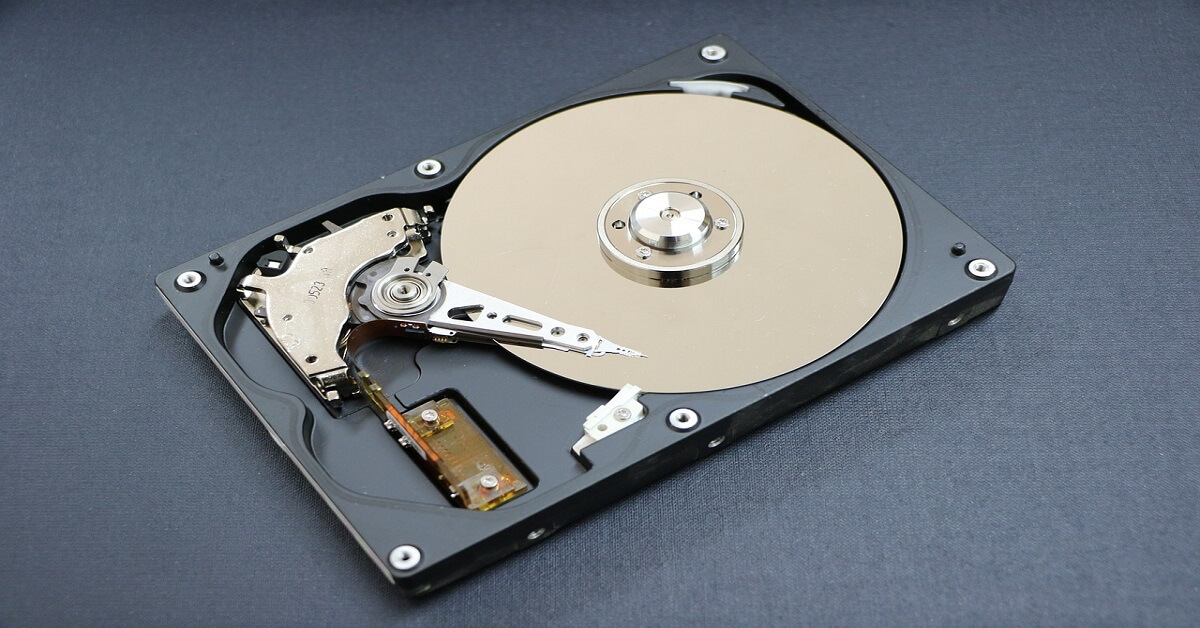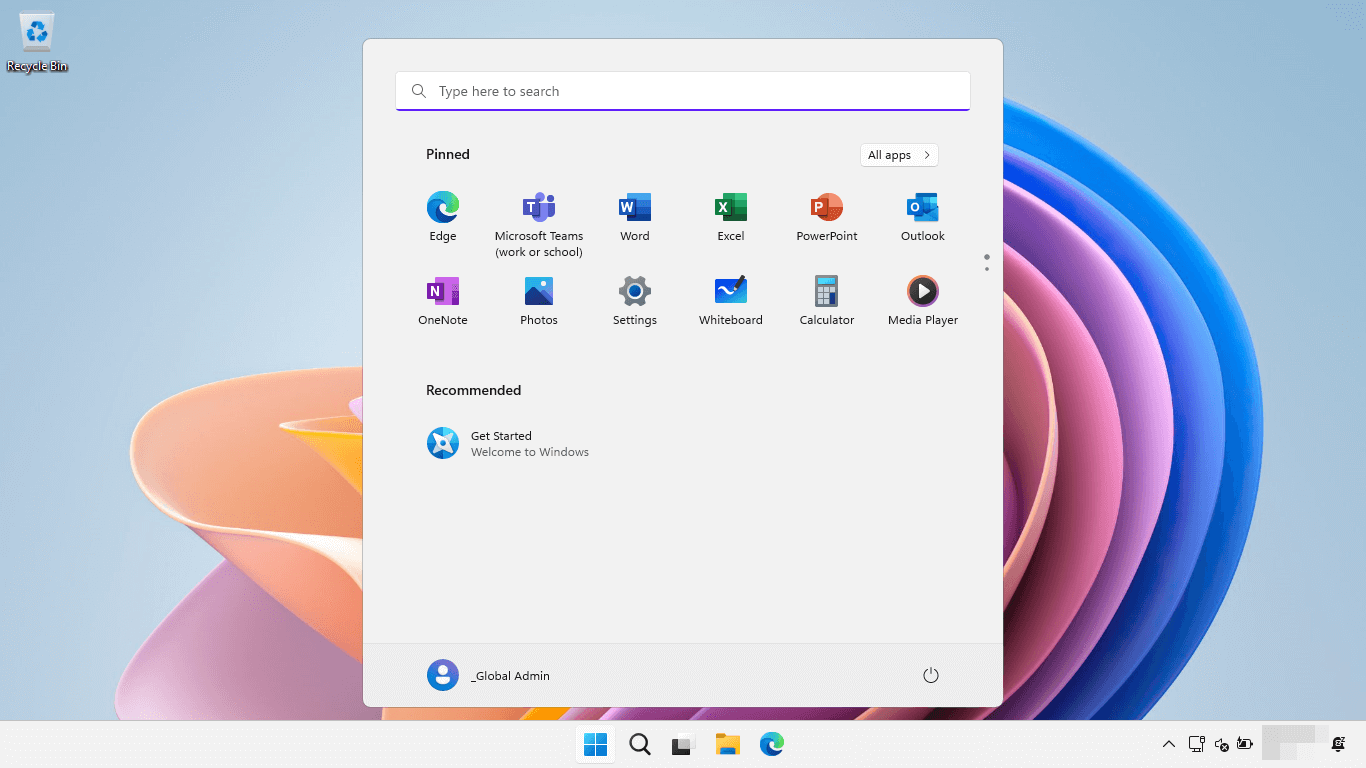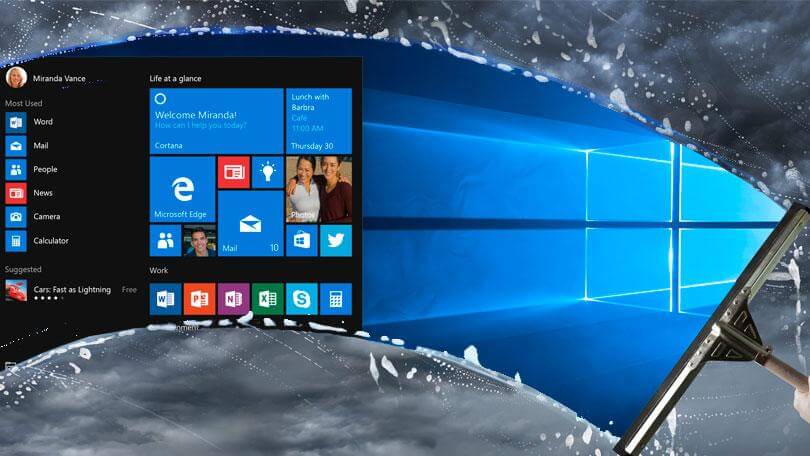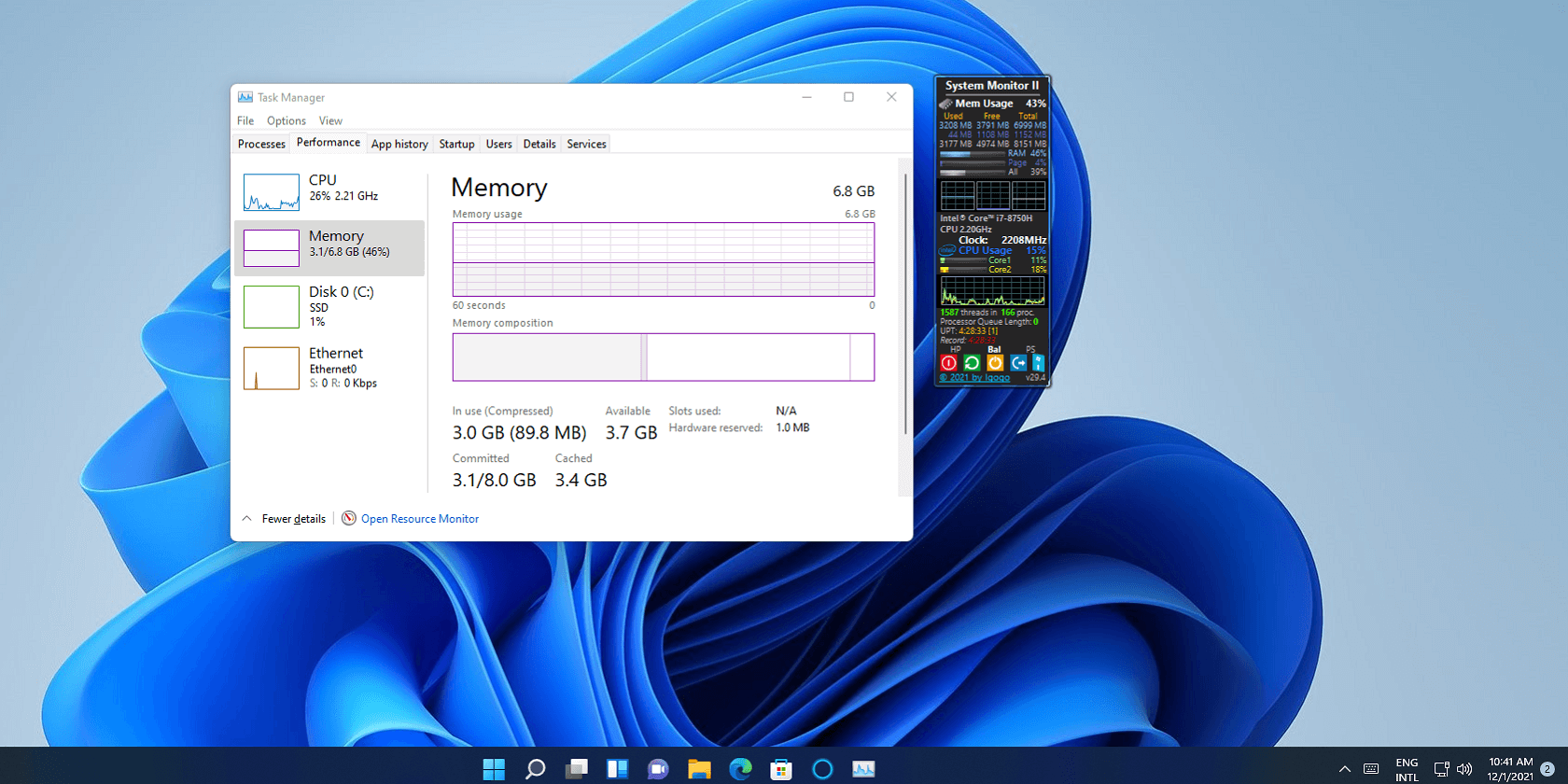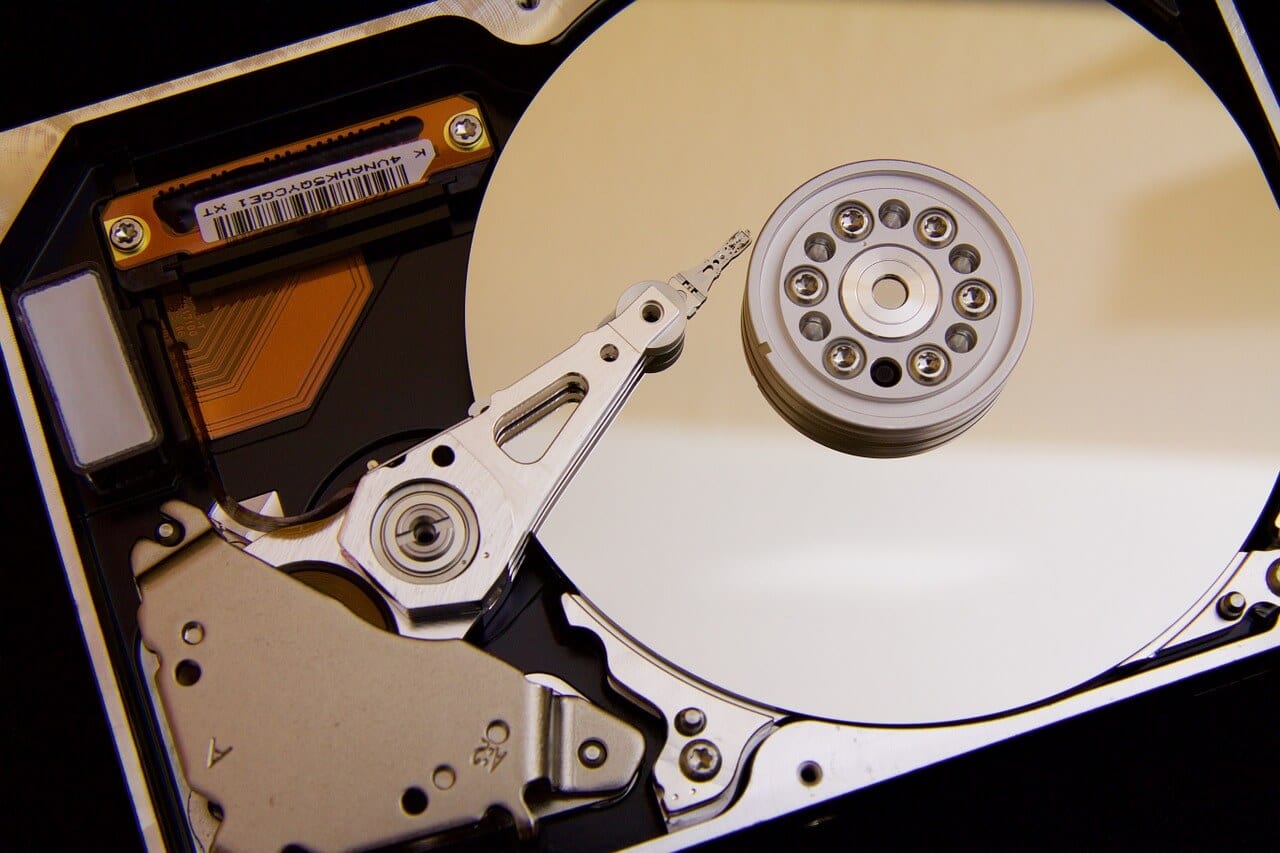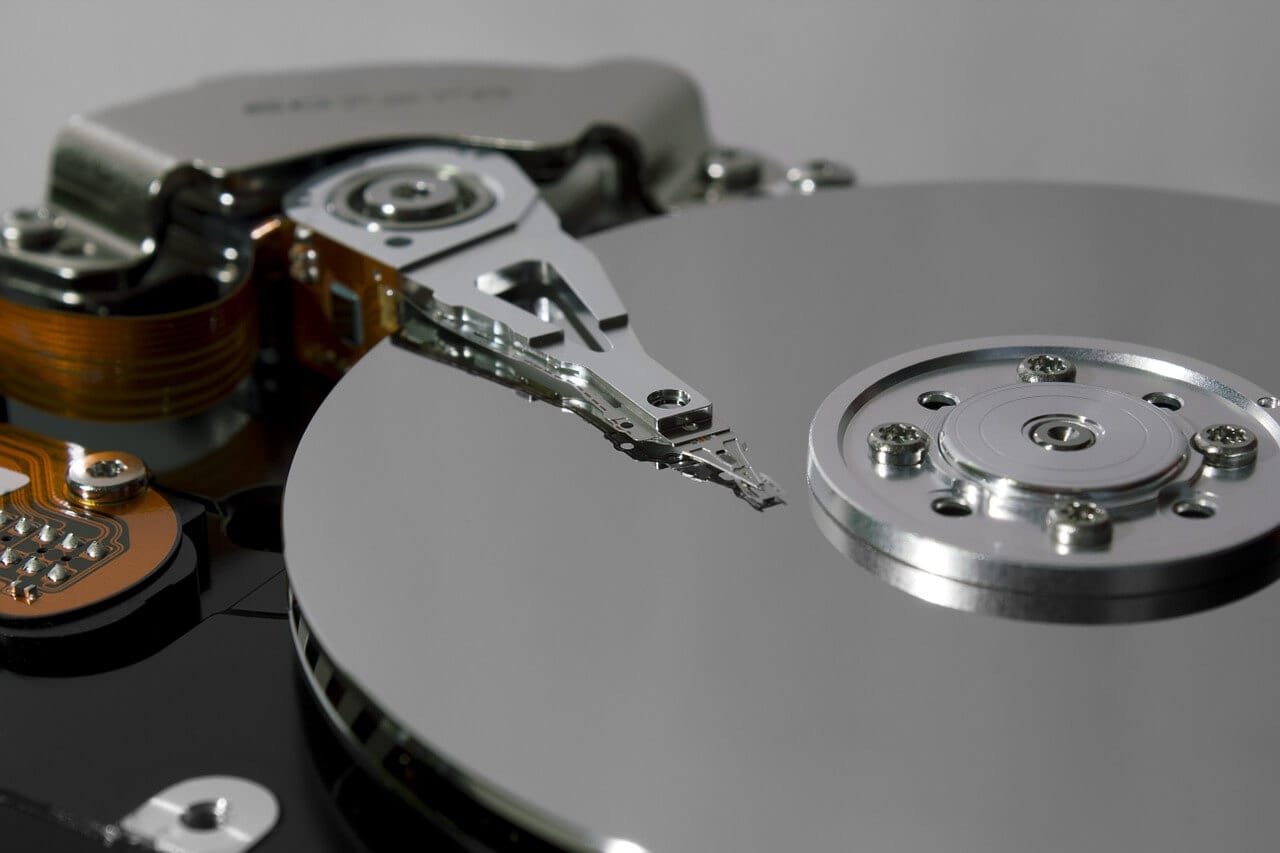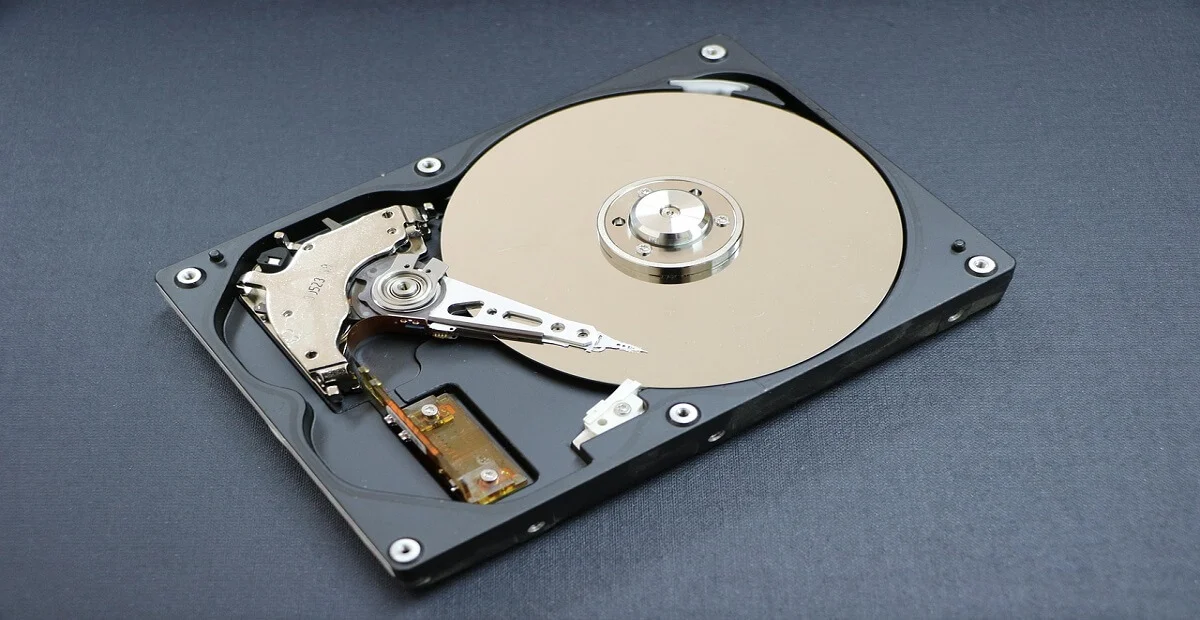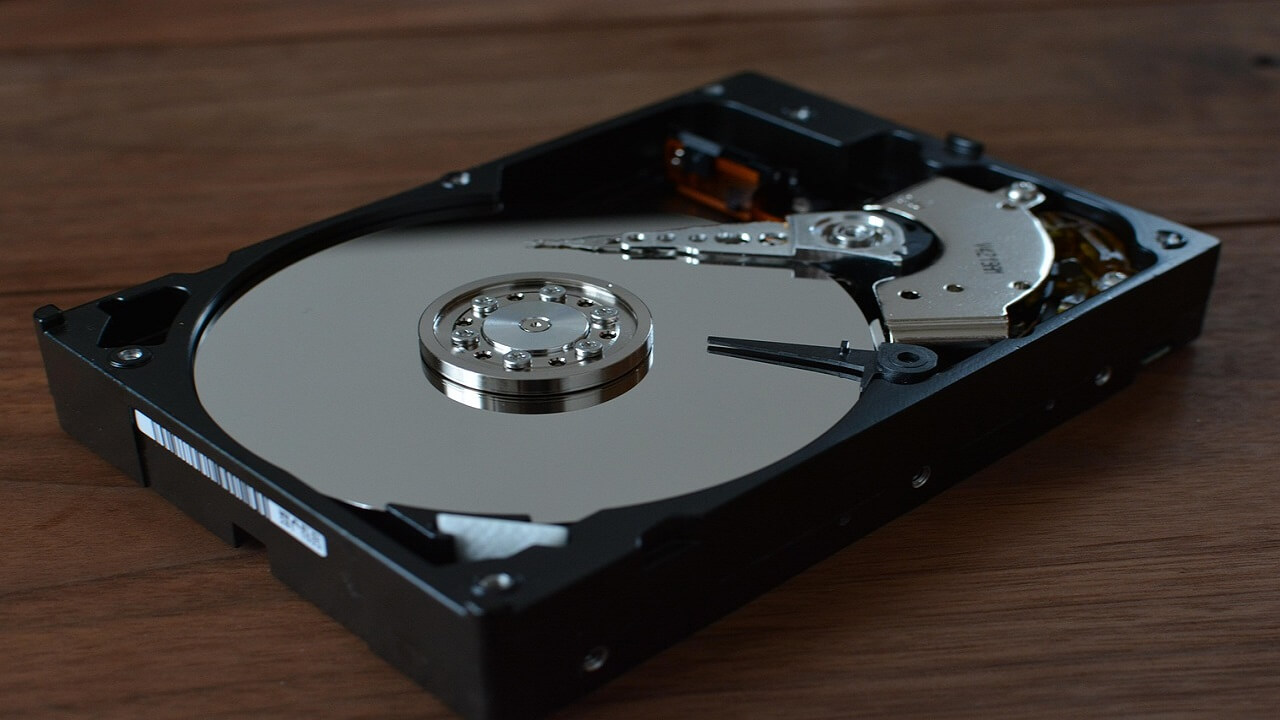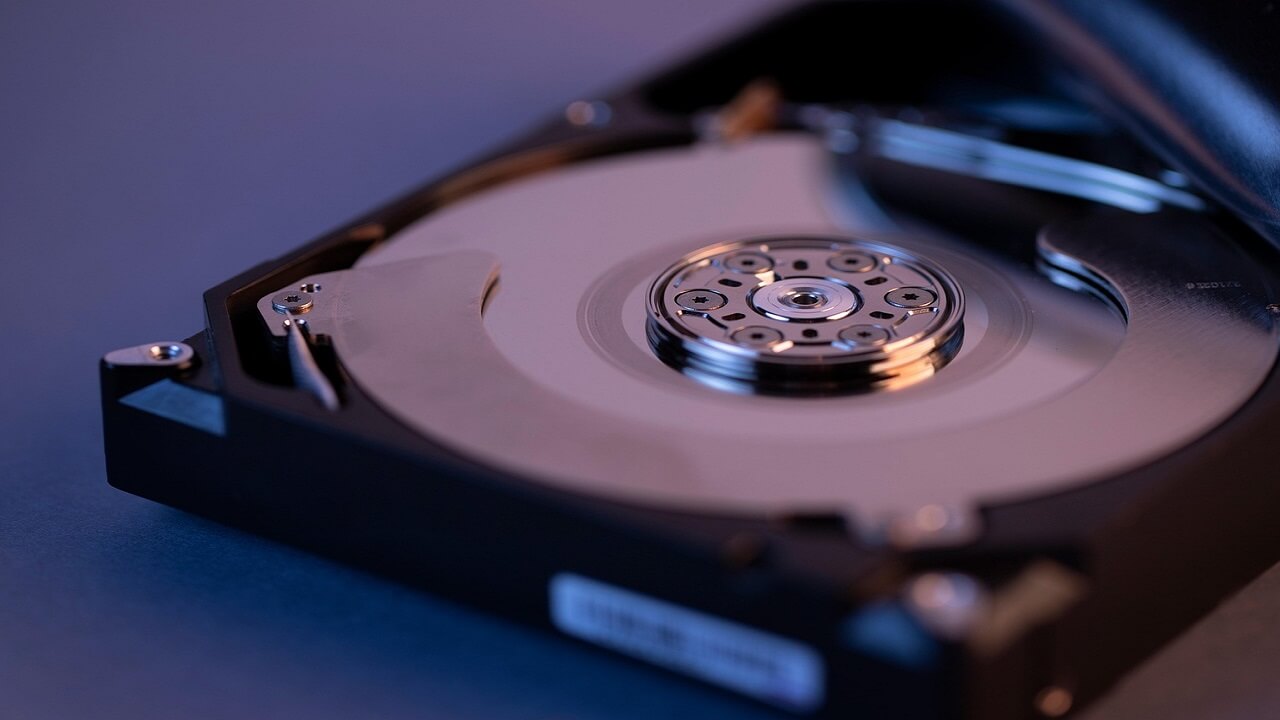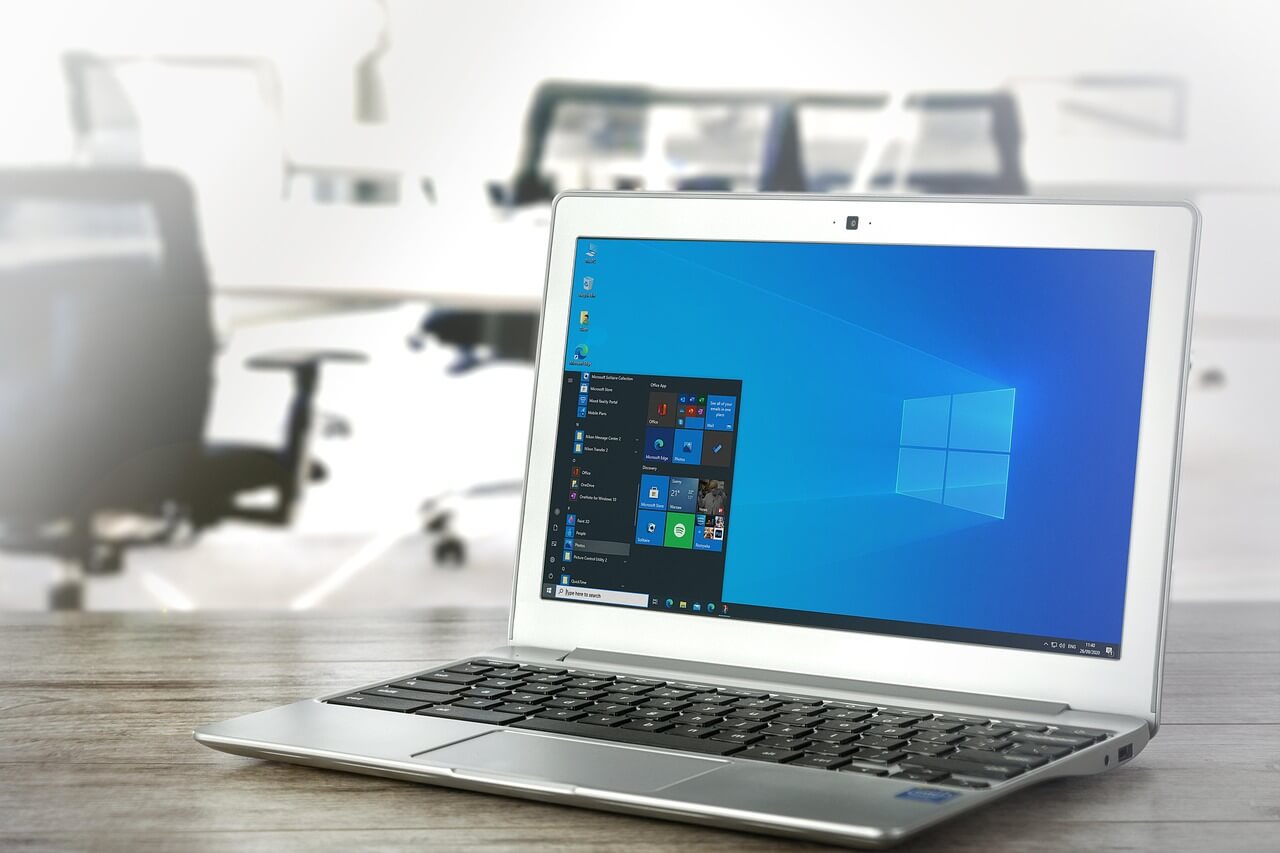How To Fix Low Disk Space Error Due To A Full Temp Folder
A low disk space error due to a full temp folder is a common problem. Many users face this issue daily. Your computer stores temporary files in special folders. These files ensure optimal program performance, but they can accumulate as time goes on.
When temp folders get full, your system slows down. You might see error messages. Your computer may freeze or crash. This happens because Windows needs free space to work properly. The low disk space error due to a full temp folder stops normal operations.
Don’t worry – this problem has simple fixes. You can clean temp folders safely. This article shows you how to solve the low disk space error due to a full temp folder. We’ll cover easy methods that work for everyone. You’ll learn to prevent this issue too.
Part 1: Meaning of “Low Disk Space Due to a Full Temp Folder Error?”
A low disk space error caused by a full temp folder means temporary files are occupying more space than they should. These folders hold files that programs generate while operating, and ideally, they delete themselves when no longer needed — but that doesn’t always happen.
Your computer contains multiple temporary folders, with the primary ones located in the user and Windows directories. Programs use these folders for storing files they need to access quickly. For example, web browsers place downloads there initially, and office applications save backup copies within them.
When these folders get full, Windows can’t create new temp files. This causes the low disk space error due to a full temp folder. Your system needs temporary space to install updates. It needs space to run programs. Without enough room, everything slows down or stops working.
Part 2: What Causes the Low Disk Space Due to a Full Temp Folder Error?
Several things can cause the low disk space error due to a full temp folder. Understanding these causes helps prevent future problems.
- Program crashes leave temp files behind – When software crashes, it can’t clean up its temporary files properly
- Browser downloads pile up – Web browsers often save files to temp folders before moving them to final locations
- Windows updates create backup files – System updates generate many temporary files that may not get deleted
- Office programs create auto-save files – Word, Excel, and other office tools save backup copies in temp folders
- System restore points take up space – Windows creates restore data that gets stored in temporary locations
- Incomplete installations leave files – Failed software installs often leave temporary files behind
- User account issues prevent cleanup – Permission problems can stop automatic temp file deletion
Part 3: Quick Fixes: Low Disk Space Due to a Full Temp Folder Error
Here are eight proven methods to fix the low disk space error due to a full temp folder. Each method targets different aspects of the problem.
Start with the safest options first. These won’t harm your system. Move to advanced methods only if needed. Always restart your computer after major cleanups.
Fix 1: Use the Disk Cleanup Tool
Windows has a built-in tool to fix the low disk space error due to a full temp folder. Disk Cleanup finds and removes unnecessary files safely. It’s the easiest method for beginners.
Why use Disk Cleanup?
- Safe and built into Windows
- Removes multiple types of temp files at once
- Easy to use with a simple interface
Steps:
- Open Windows Search. Type “Disk Cleanup”.
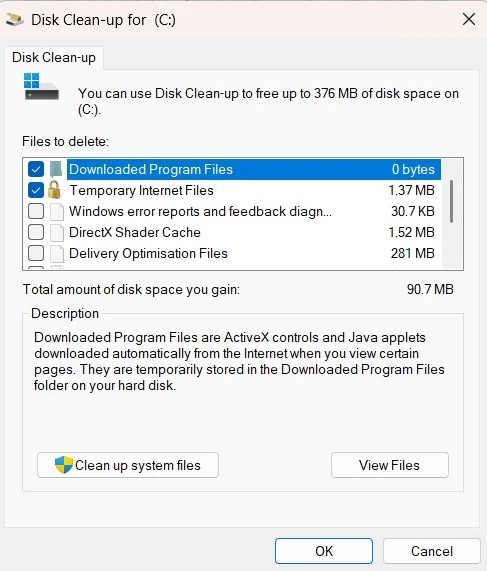
- Select your main drive (usually C:) and click “Clean up system files”.
Fix 2: Manually Delete Temp Files
You can manually delete temp files to solve the low disk space error due to a full temp folder. This gives you full control over what gets removed. It’s faster than automated tools sometimes.
Manually deleting files allows you to pinpoint what’s consuming disk space. It enables you to focus on particular programs or file types, and can be especially useful when automated tools don’t get the job done.
Why use manual deletion:
- Complete control over file removal
- Can target specific problem areas
- Works when automated tools fail
Steps:
- Press Windows + R. Type “%temp%” and press Enter.
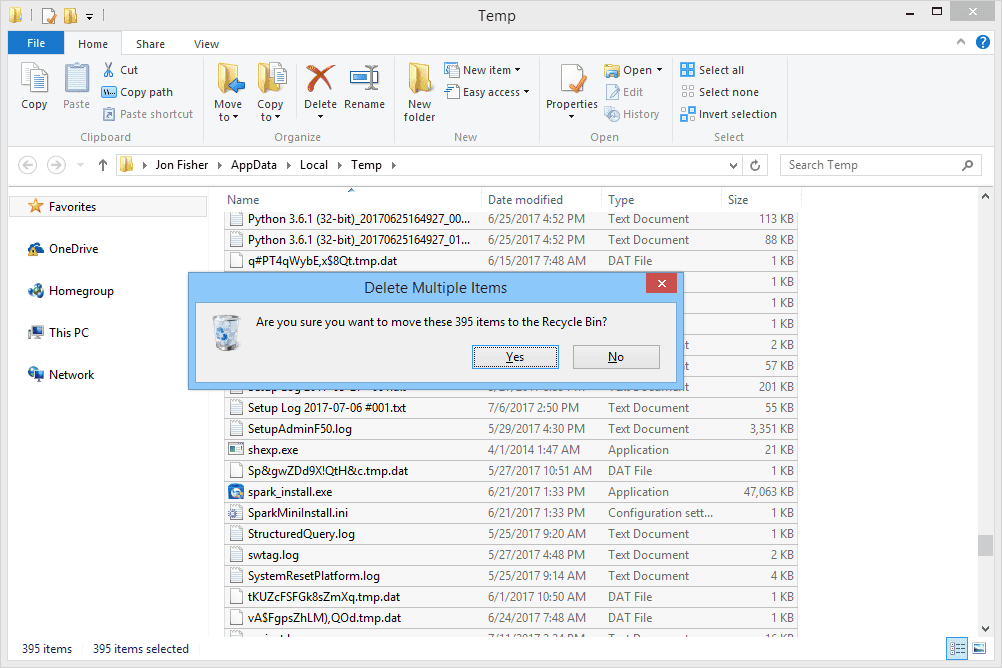
- Select all files (Ctrl+A) and delete them (some may be locked, and that’s okay)
Fix 3: Run Storage Sense
Storage Sense automatically cleans temp files to prevent the low disk space error due to a full temp folder. It runs in the background without your input. This keeps your system clean all the time.
This feature removes old downloads and recycle bin files. It also cleans up Windows Update files.
Why use Storage Sense?
- Automatic cleaning prevents problems
- Runs in the background without interruption
- Customizable cleanup schedule
Steps:
- Go to Settings > System > Storage.
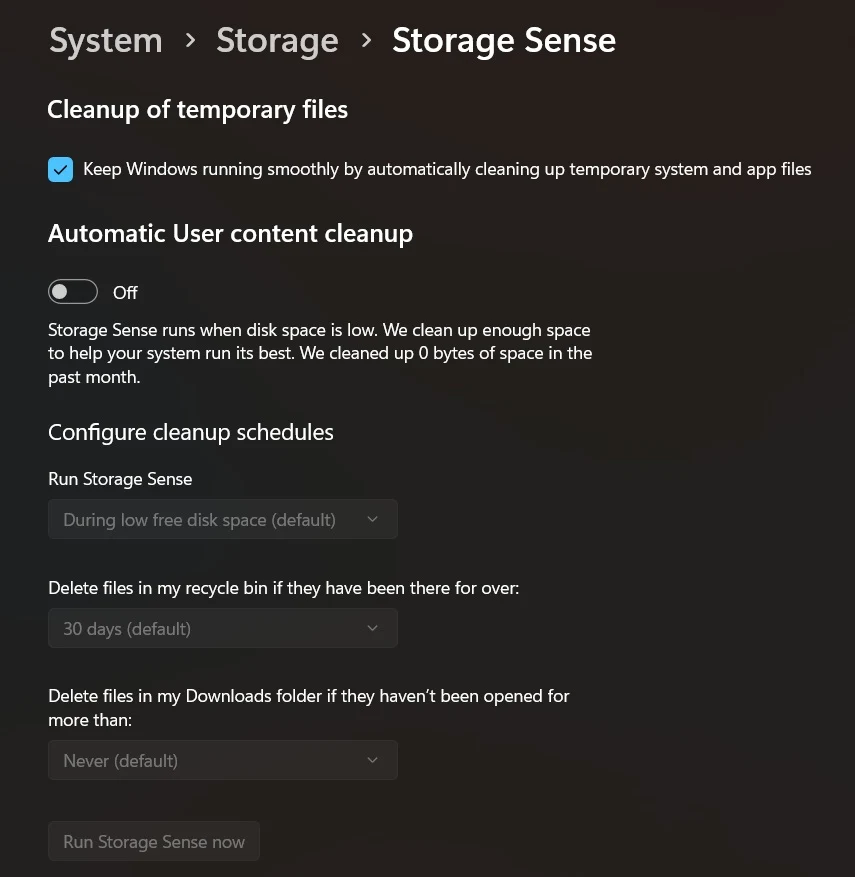
- Turn on Storage Sense and configure cleanup options
Fix 4: Clear Browser Cache
Web browsers cause many cases of low disk space error due to a full temp folder. They store website data in temp folders. This data can grow very large over time.
Why clear browser cache:
- Browsers store lots of temp data
- Quick way to free up space
- Improves browser performance too
Steps:
- Open your browser settings and find Privacy or History section.
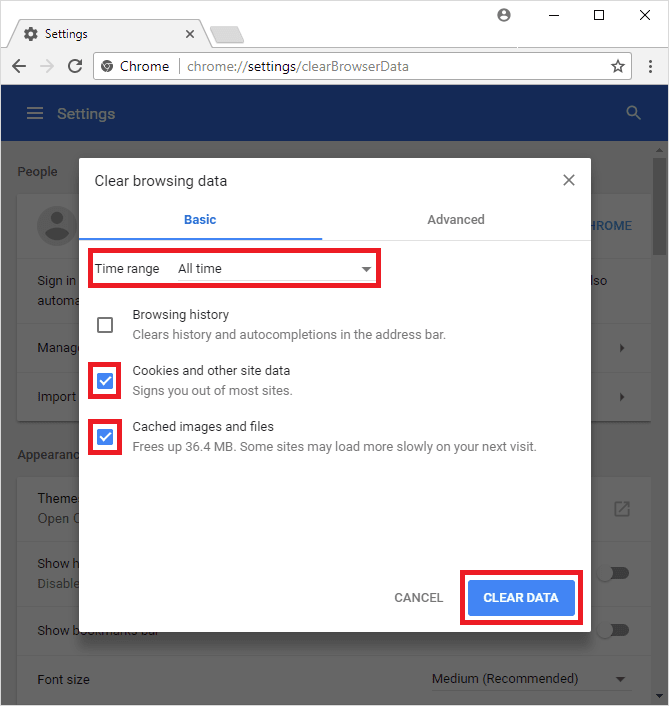
- Choose “Clear Data” and select temporary files and cache
Fix 5: Delete Windows Update Files
Windows Update creates many temp files that cause a low disk space error due to a full temp folder. These files help install updates, but stay after installation. They’re safe to remove after updates complete.
Old update files can take up several gigabytes. Windows keeps them for troubleshooting. But you can delete them if space is tight.
Why delete update files:
- Can free up several GB of space
- Safe to remove after updates install
- Prevents future disk space issues
Steps:
- Open Disk Cleanup and click “Clean up system files”.
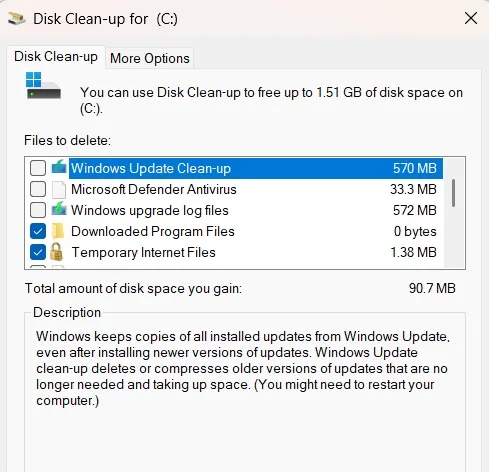
- Check “Windows Update Cleanup” and “Previous Windows installations.”
Fix 6: Use Command Prompt Cleanup
Command Prompt offers powerful cleanup options for low disk space error due to a full temp folder. It can access areas that regular tools can’t reach. This method removes stubborn temp files.
Command line tools work faster than graphical interfaces. They can force-delete locked files. This method helps with persistent temp file problems.
Why use Command Prompt:
- Access to advanced cleanup options
- Can remove stubborn locked files
- Faster than graphical tools
Steps:
- Open Command Prompt as Administrator.
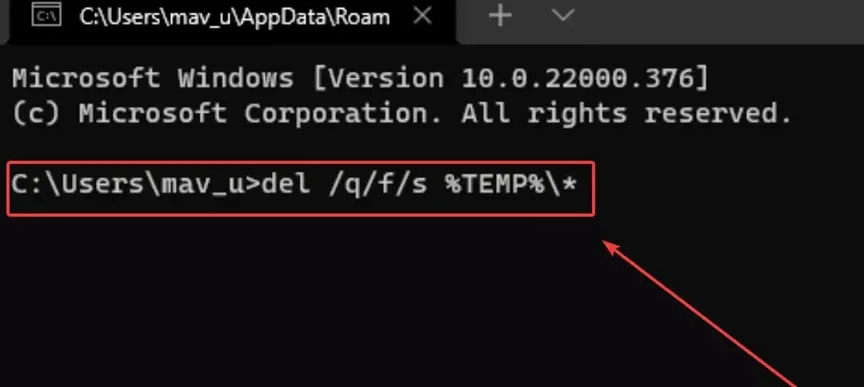
- Type “del /s /f /q %temp%*.*” and press Enter
Fix 7: Check for Large Files
Sometimes large files hide in temp folders causing low disk space error due to a full temp folder. These might be incomplete downloads or crash dumps. Finding them manually helps target the real problem.
Large files often get overlooked by standard cleanup tools. They might be locked by running programs. Manual checking finds these space hogs.
Why check for large files:
- Finds space hogs that tools miss
- Targets the biggest problems first
- Helps identify problematic programs
Steps:
- Use File Explorer to navigate to C:\Users[YourName]\AppData\Local\Temp.
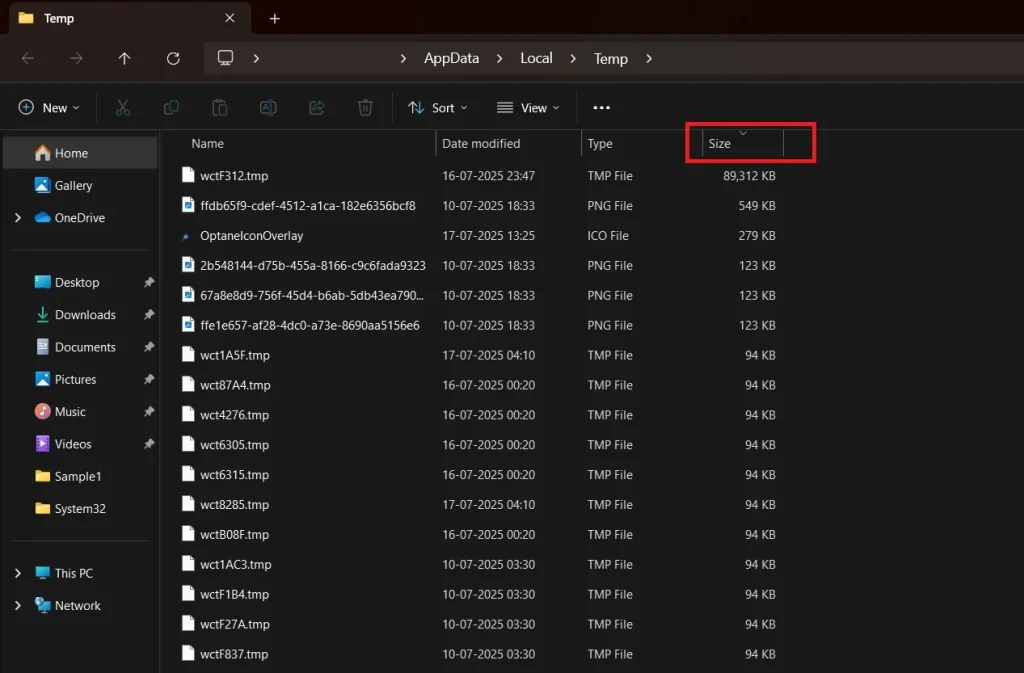
- Sort files by size and delete the largest ones safely
Fix 8: Restart and Clean Again
Restarting your computer helps solve the low disk space error due to a full temp folder by unlocking files. Many temp files get locked by running programs. A restart closes these programs and frees the files.
After a restart, run cleanup tools again. They’ll find files that were locked before. This combination approach works better than single attempts.
Why restart and clean again?
- Unlocks files that were in use
- Allows deeper cleanup after restart
- Combines multiple approaches for better results
Steps:
- Restart your computer completely.
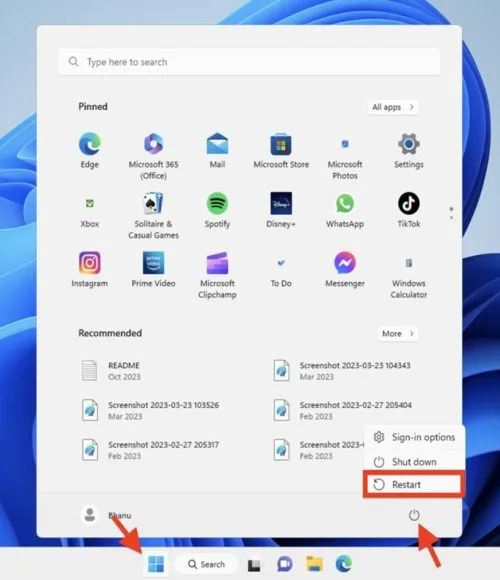
- Run Disk Cleanup or manual deletion again after a restart.
Author’s TIP
As a tech support specialist, we’ve seen the low disk space error due to a full temp folder countless times. Most users panic when they see this error, but it’s actually one of the easiest problems to fix. The key is understanding that temp files are meant to be temporary – they’re safe to delete once programs finish using them. I always tell my clients to start with the gentlest methods first, then work up to more aggressive cleaning if needed.
Here’s our proven approach that works 95% of the time: begin with Windows built-in tools, then move to manual deletion, and finish with prevention setup. Never skip the restart step – it’s crucial for unlocking files that were in use. We’ve helped thousands of users solve the low disk space error due to a full temp folder using these exact methods.
The most important thing is regular maintenance – clean your temp folders weekly to prevent this problem from coming back.
Part 4: Additional Tips to Avoid the Low Disk Space Due to a Full Temp Folder Error
Prevention is better than fixing the low disk space error due to a full temp folder after it happens. These tips help keep your temp folders clean automatically.
Set up automatic cleanup schedules – Configure Storage Sense to run weekly cleanups
Move temp folders to another drive – Change temp folder location if you have multiple drives
Regular system maintenance – Clean temp files monthly as part of routine maintenance
Monitor disk space regularly – Check available space weekly to catch problems early
Close programs properly – Always exit programs normally to let them clean up temp files
Update software regularly – New versions often have better temp file management
Use cloud storage for downloads – Store downloads in the cloud instead of local temp folders
Install an SSD if possible – Solid state drives handle temp files better than traditional drives
Conclusion
The low disk space error due to a full temp folder is fixable with the right approach. Start with built-in Windows tools like Disk Cleanup. Try manual deletion if automated tools don’t work. Regular maintenance prevents this problem from happening again.
Remember that temp files serve important purposes while programs run. Don’t delete them while programs are active. Always restart your computer after major cleanups. This ensures all changes take effect properly.
Most users can solve the low disk space error due to a full temp folder using these methods. Prevention through regular cleaning works better than emergency fixes. Set up automatic cleanup to avoid future problems. Your computer will run faster and more reliably with clean temp folders.
FAQs
Q: Is it safe to delete all temp files to fix the low disk space error due to a full temp folder?
Yes, it’s generally safe to delete temp files, but close all programs first. Some files might be locked by running applications. Windows will protect critical system files automatically. If you can’t delete a file, it’s probably in use and you should leave it alone.
Q: How often should I clean temp files to prevent a low disk space error due to a full temp folder?
Clean temp files weekly for normal use or daily for heavy computer use. Set up Storage Sense to do this automatically. Monthly deep cleaning with Disk Cleanup helps catch files that automated tools miss. Regular cleaning prevents the problem from getting severe.
Q: Can a low disk space error due to a full temp folder damage my computer?
No, the error itself won’t damage hardware, but it can cause system instability. Your computer might freeze or crash when temp folders are full. Programs may not work properly. The main risk is data loss if programs can’t save properly due to a lack of space.
Popular Post
Recent Post
Supercharge Your Productivity: A Solopreneur’s and SMB’s Guide to Mastering Google Workspace with Gemini’
Picture this. It’s Monday morning. You open your laptop. Email notifications flood your screen. Your to-do list has 47 items. Three clients need proposals by Friday. Your spreadsheet crashed yesterday. The presentation for tomorrow’s meeting is half-finished. Sound familiar? Most small business owners live this reality. They jump between apps. They lose files. They spend […]
9 Quick Tips: How To Optimize Computer Performance
Learn how to optimize computer performance with simple steps. Clean hard drives, remove unused programs, and boost speed. No technical skills needed. Start today!
How To Speed Up My Computer/Laptop Windows 11/10 [2025]
Want to make your computer faster? A slow computer can be really annoying. It takes up your time and makes work more difficult. But with a few easy steps, you can improve your laptop’s speed and make things run more smoothly. Your computer slows down over time. Old files pile up. Programs start with Windows. […]
How To Fix Low Disk Space Error Due To A Full Temp Folder
A low disk space error due to a full temp folder is a common problem. Many users face this issue daily. Your computer stores temporary files in special folders. These files ensure optimal program performance, but they can accumulate as time goes on. When temp folders get full, your system slows down. You might see […]
How to Use Disk Cleanup on This Computer: Step-by-Step Guide
Computers getting slow is just the worst, right? Well, yes! Files pile up on your hard drive. Luckily, the Disk Cleanup tool on your PC is here to save the day. It clears out unnecessary files, giving your system the boost it needs to run smoothly again. A lot of users aren’t aware of the […]
Top 25 Computer Maintenance Tips: Complete Guide [2025]
Computer maintenance tips are vital for every PC user. Without proper PC maintenance, your system will slow down. Files can get lost. Programs may crash often. These computer maintenance tips will help you avoid these problems. Good PC maintenance keeps your computer running fast. It makes your hardware last longer. Regular computer maintenance tips can […]
Reclaiming Disk Space On Windows Without Losing Files: A Complete Guide
Running low on storage can slow down programs and trigger that annoying “low disk space” warning. Files accumulate over time, cluttering the drive. The good news? It’s possible to reclaim space without deleting anything important. Reclaiming disk space on Windows without losing files is easier than you think. Your computer stores many temporary files, old […]
Fix Issues Downloading From the Microsoft Store on Windows 11, 10 PC
Do you get excited when you’re about to download a new app or game? You open the Microsoft Store, click the download button… but nothing happens. Or maybe it starts and then suddenly stops. Sometimes, strange messages pop up like “Something happened on our end” or “Try again later.” That can be really annoying. But […]
Fix Low Disk Space Errors Quickly On Windows 11, 10 PC [2025]
Low disk space errors can slow down your Windows PC. These errors appear when your hard drive runs out of room. Your computer needs space to work properly. When space runs low, programs crash and files won’t save. Windows shows warning messages about low disk space. Your PC may freeze or run slowly. You might […]
How To Uninstall Software From My Computer: Complete Guide [2025]
Learning how to uninstall software from my computer is a key skill. Every PC user needs to know this. Old programs take up space. They slow down your system. Unused software creates clutter. When you remove a program from computer, you free up storage. Your PC runs faster. You also fix issues caused by bad […]

